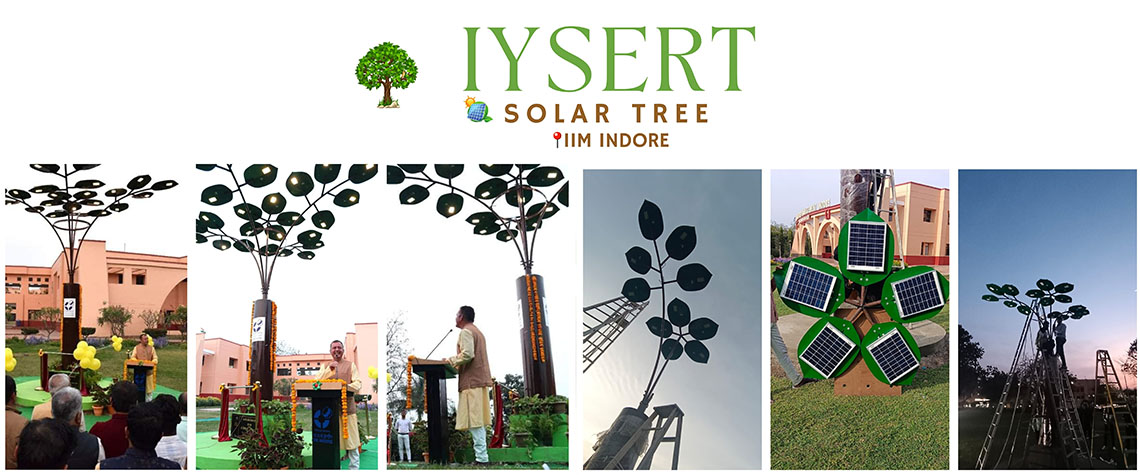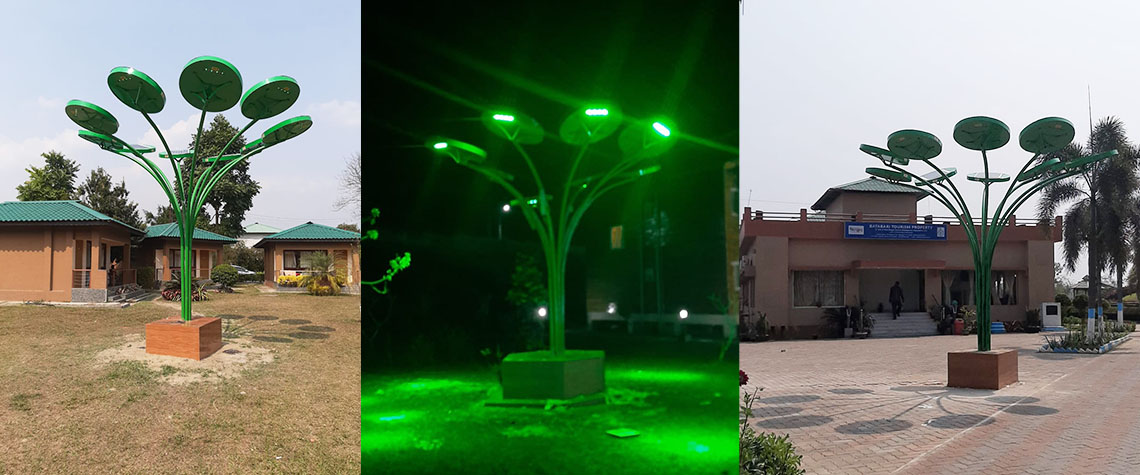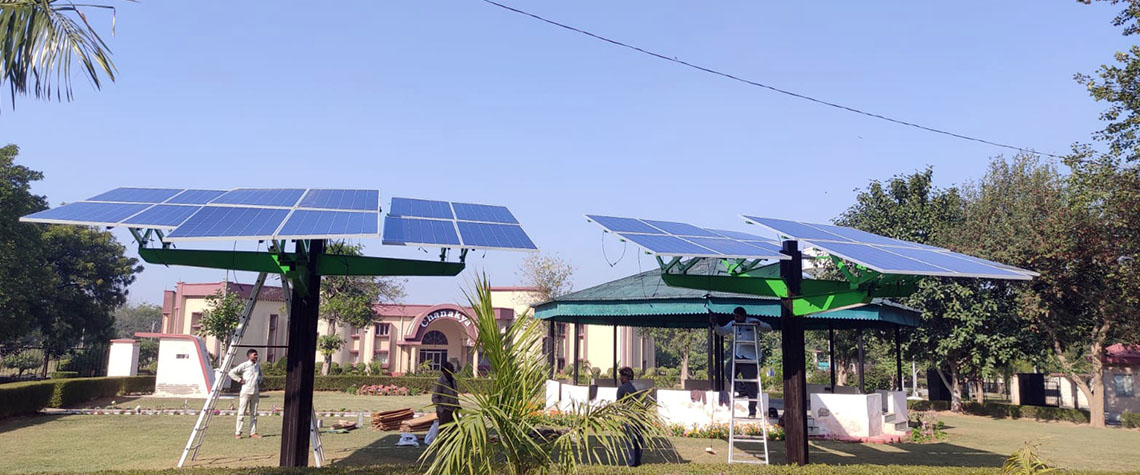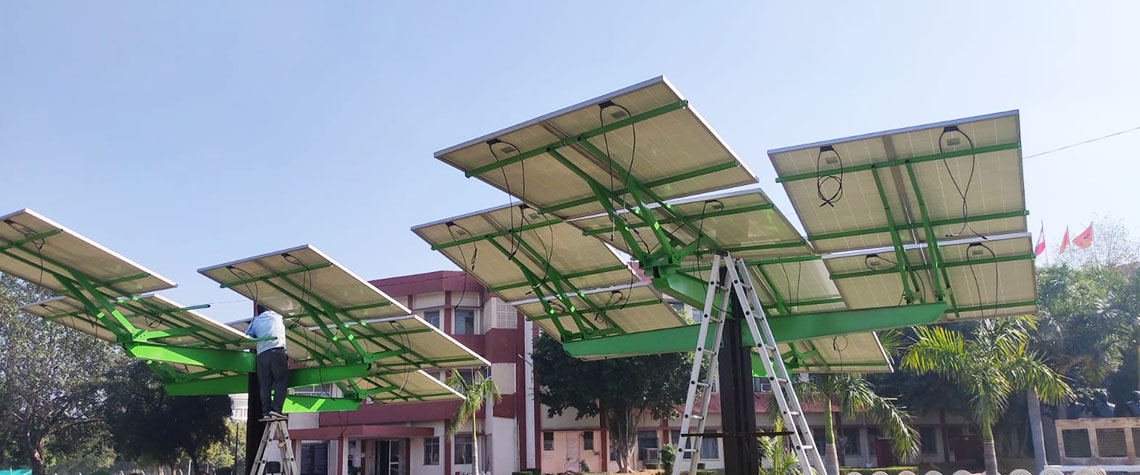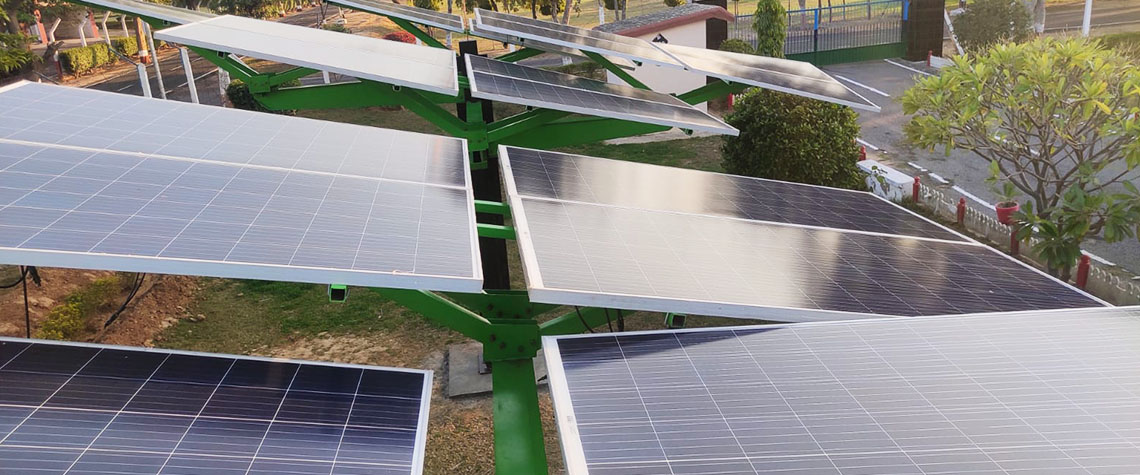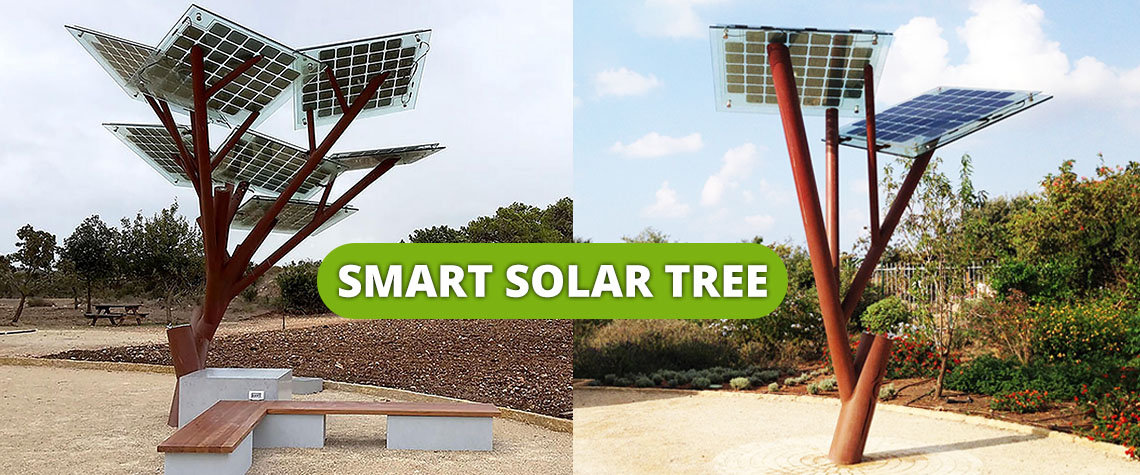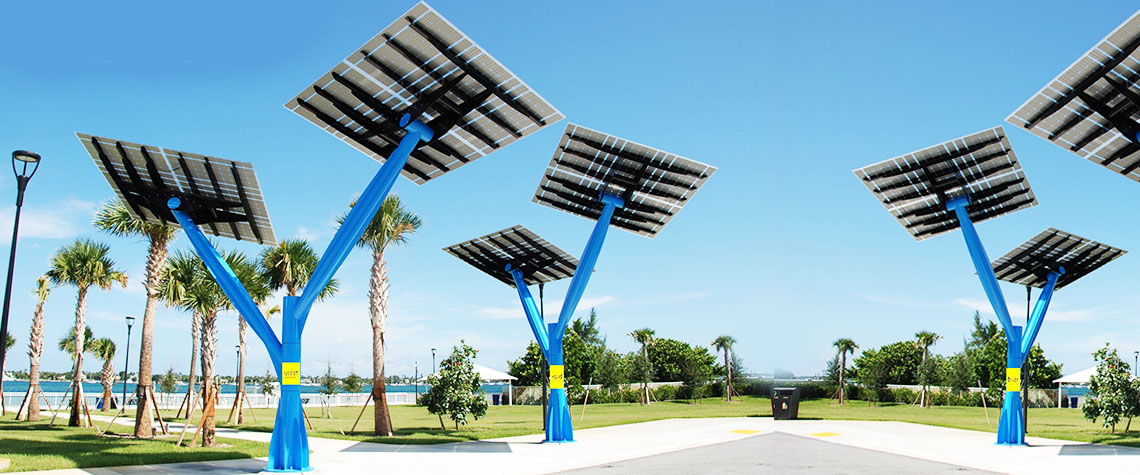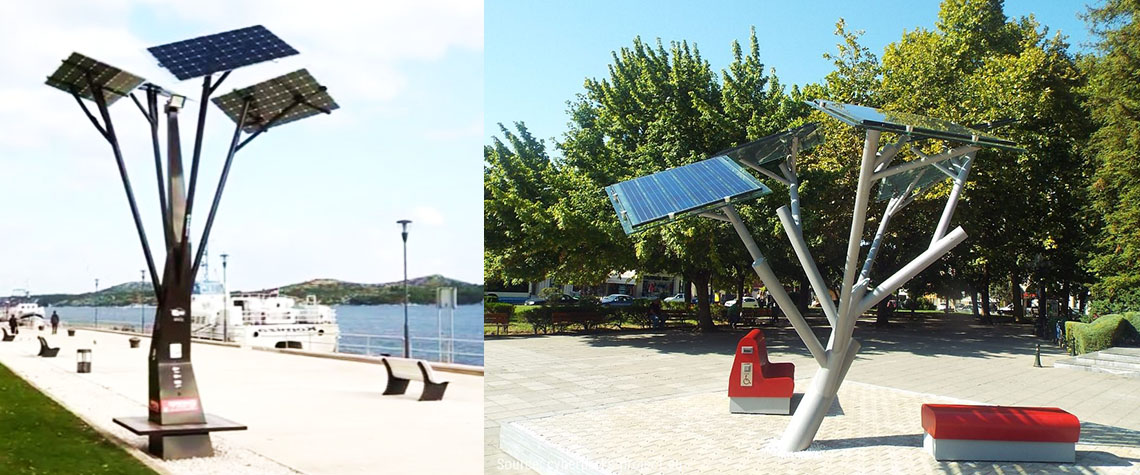








HYBRID SOLAR TREE
Iysert is the Manufacturer of Smart Portable solar Power Tree Model Range from 500 watt - 10 kw and Approved Vendor for Smart City ,Government of India. Approved Channel Partner with MNRE , Indian Railways , Gujarat Housing Board , Jodhpur , Jaisalmer Nagar Nigam, Bareilly Smarct City , Dehradun Smart City , Lucknow Smart City , Gujarat Smart City Projects.
Smart Solar Power Tree: In Iysert solar trees, PV panels or cells are arranged in a Fibonacci series pattern instead of leaves. The solar tree produces more power than a conventional flat arrangement of solar cells.
Solar Tree for Homes: A Single Solar tree can generate up to 10 KW which can work for entire home.Looks very beautifully in front of home with an attractive design. Solar Tree concept is big step to reduce Electricity bills and to make your home beautifully.
Solar Tree for Parks , Industrial Areas , Public Places: Multiple Solar trees can be placed to produced more energy which will play an important role to reduce the space and also bring an astonishing look for your location which will add a value to the quality of your work.
Why solar trees?
Factors that make the solar trees stand out:
- Efficient design: In situations where space is a constraint, solar trees provide an option for installing multiple layers of solar panels while maximizing the efficiency of the available area.
- They look great: The solar tree design is efficient and strikingly appealing. Compared to the way standard solar panels are laid out, solar trees look a lot more aesthetically pleasing. The sight of a tree-shaped solar installation can be quite pleasing to the eyes.
- Flexibility and compatibility: Solar panel trees can serve as an excellent option for properties where solar roofing is not an option. They are also available with automatic sun tracking and in-built cleaning mechanisms.
- Potentially enhanced electricity output: There are certain solar tree designs which claim to produce a substantially higher amount of electricity when compared to standard solar panels covering the same surface area.
The Life expectancy:
The solar panels typically would last for a minimum of 25 years depending on the weather conditions and maintenance. However, during this period, you have contributed substantially to the environment by not producing toxic effluents. The benefits are far more than the disadvantages.

